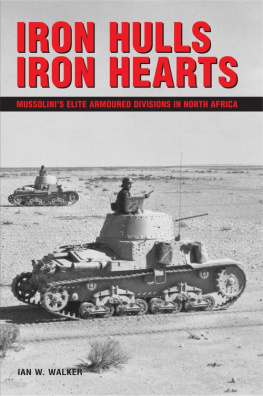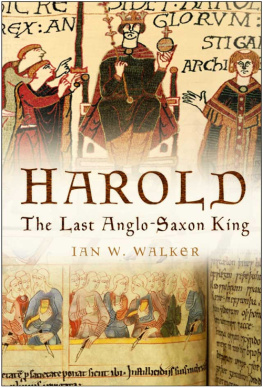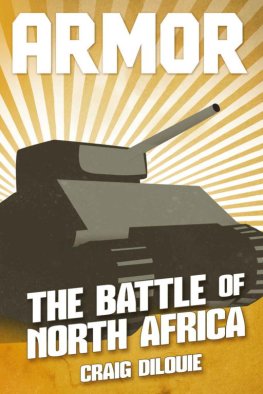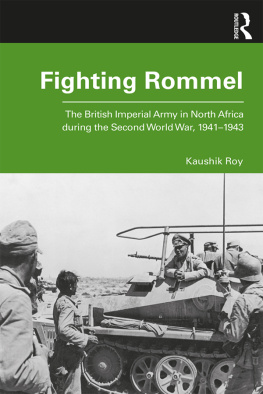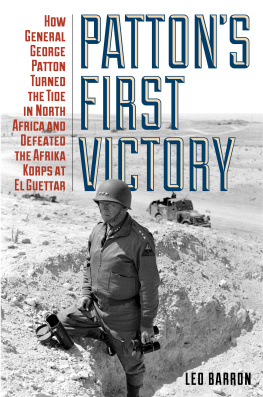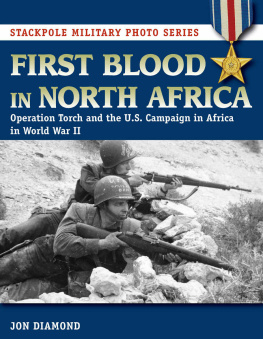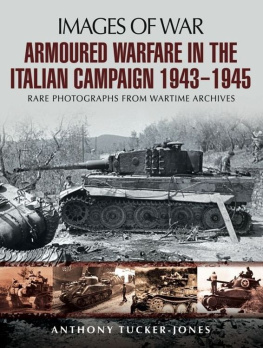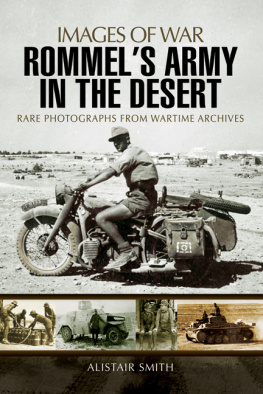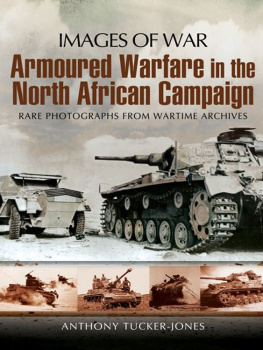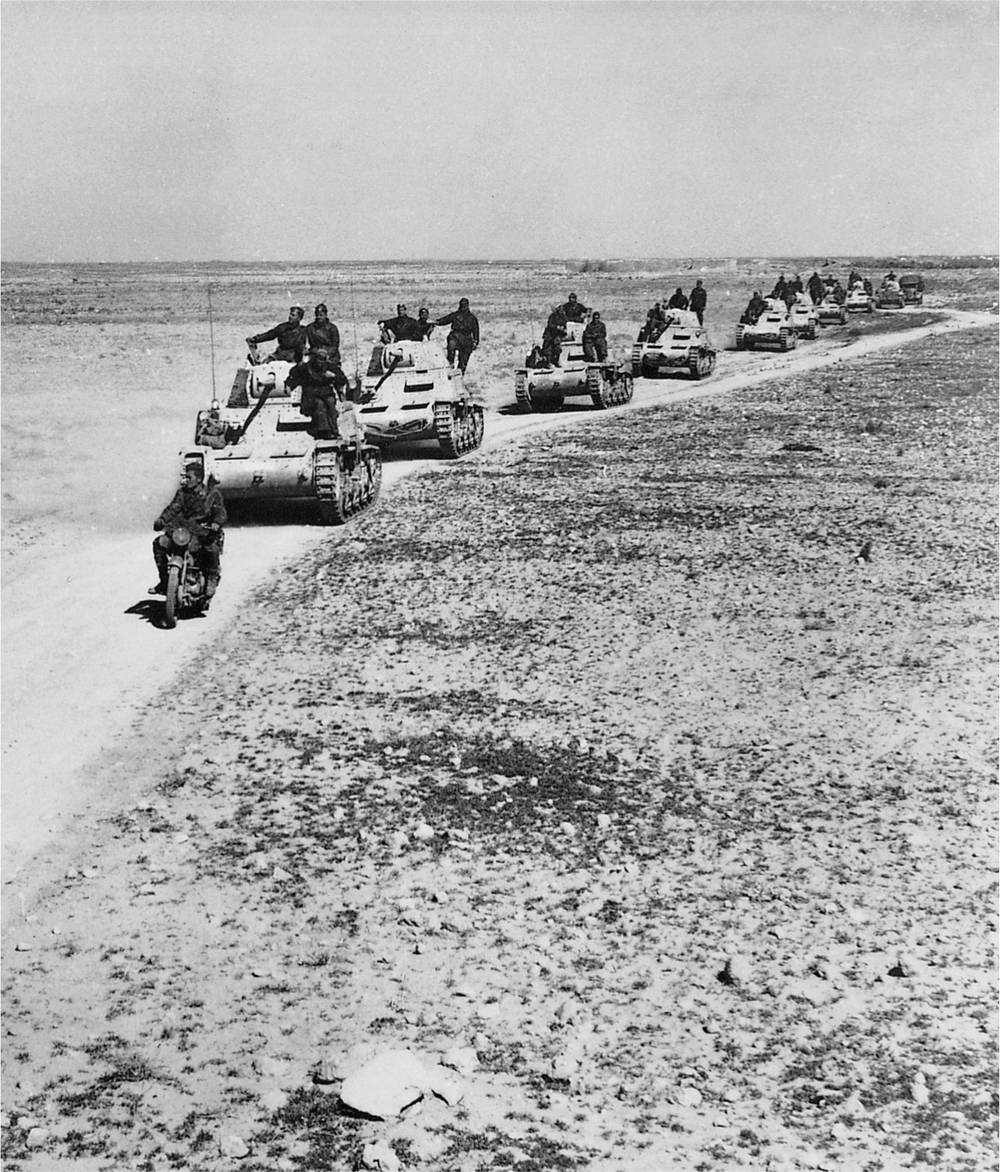First published in 2003 by
The Crowood Press Ltd,
Ramsbury, Marlborough,
Wiltshire, SN8 2HR
www.crowood.com
This e-book edition first published in 2012
Ian W. Walker 2003
All rights reserved. This e-book is copyright material and must not be copied, reproduced, transferred, distributed, leased, licensed or publicly performed or used in any way except as specifically permitted in writing by the publishers, as allowed under the terms and conditions under which it was purchased or as strictly permitted by applicable copyright law. Any unauthorised distribution or use of this text may be a direct infringement of the authors and publishers rights, and those responsible may be liable in law accordingly.
ISBN 978 1 84797 473 0
In Britain and the wider English-speaking world almost everyone is familiar with the Desert War fought in North Africa between June 1940 and May 1943. They have all heard of the famous Field Marshal Bernard Montgomery and his 8th Army. They are equally familiar with his legendary opponent Field Marshal Erwin Rommel and his Deutsches Afrika Korps (DAK). The epic encounter between these rivals and their lite forces that took place at El Alamein is viewed as one of the key battles of World War II. There are countless books on the North African campaign, ranging in scope from academic studies of the grand strategy through to personal memoirs. In their entirety these works manage to touch on almost every conceivable aspect of the conflict.
In spite of all this, I hope to offer an entirely fresh perspective on this familiar campaign of World War II. This will come from a focus on the hitherto neglected story of the Italian involvement. In all previous accounts in English, the Italians have been either ignored completely or afforded little more than an acknowledgement of their presence yet they made up the bulk of the Axis forces involved in this campaign, a fact not reflected in existing accounts. They are sometimes allowed a place during the first phase of the campaign as Britains only opponents, but the arrival of Rommels Afrika Korps in early 1941 quickly relegates them to obscurity thereafter. This book will seek to redress this imbalance by focusing directly on the activities of the Italians, particularly in the period following Rommels intervention.
In the historiography of World War II generally the Italians are undoubtedly poor relations, especially in English works. In some ways this is natural, since Italy was undoubtedly the weakest of the Axis powers. Its military were able to claim few significant successes during the war, while suffering a number of disastrous defeats, especially in their opening year of war. Thereafter Italy was effectively overshadowed by its German ally. In a real sense, however, the fighting that raged around the Mediterranean Sea and along the coast of North Africa was Italys war, and more precisely Benito Mussolinis war, since it was the Italian dictators decision to declare war on Britain in June 1940 alongside Germany that plunged the Italians into a war for which they were unprepared. And it was his decision to invade British-occupied Egypt in September 1940 that first ignited the North African campaign a campaign that would only end in May 1943 with the surrender of the Italian 1st Army to the Allies. If Italy had not entered the war it is unlikely that there would ever have been a North African campaign at all: the German war effort was almost entirely focused on the European continent, and from June 1941 onwards increasingly on their immense Russian campaign. This concentration of German resources was only occasionally distracted and to a minor extent by the need to rectify Italian failures in the Balkans and North Africa.
The central role of Italy in initiating the North African campaign makes it all the more surprising, therefore, that so little has been written about Italys role therein. In spite of the fact that the fighting raged across Italian colonial territory, and that Italians made up the bulk of the Axis forces engaged, they are seldom allotted more than a passing mention. This is the case with almost all works in English, and especially those dealing with the period following German intervention, with a few notable exceptions. Moreover, this remains the case regardless of whether these works examine the campaign from an Allied or an Axis viewpoint. There are no works that concentrate specifically on the Italian forces involved in this campaign. What is the reason for this continued omission sixty years later?
There are, quite naturally, many works in English that deal with almost every aspect of the British and Commonwealth contributions to this campaign. Perhaps more surprisingly, there are almost as many that concentrate on the German forces involved. But in all these works the Italian forces remain a shadowy presence, although almost always acknowledged: the records of overall troop strengths and orders of battle make them all too obvious. In terms of their influence on the fighting, however, they are usually dismissed in a few paragraphs that primarily concentrate on describing their many deficiencies. Thereafter they are usually ignored, except to record their defeat or surrender, or to comment on their failure in a particular action. Was this really the full extent of their influence on the North African campaign?
In Britain, many people are familiar with wartime propaganda images of endless lines of dejected Italian prisoners of war being escorted by a single plucky British soldier. This strong visual image was reinforced by contemporary newsreel and newspaper accounts of Italian military incompetence and cowardice, often involving the use of racial stereotypes. This picture was often deliberately contrasted with German military efficiency and ferocity. This produced a strong British prejudice against the Italians very early in the war, which has been constantly reinforced in most histories produced since its end. It was a viewpoint supported by German accounts that were often openly contemptuous of their wartime allies. All of this has left a powerful legacy in English-speaking accounts, in which the Italians are widely seen as a nation of dilettantes, devoid of military skills and entirely lacking in courage. It is high time, however, that this view was re-examined to reveal what, if any, truth lies behind it. It is only by doing so that we will be able to assess what impact the Italians actually had on this campaign.
This process really requires a complete re-evaluation of the Italian economy and the political and military systems, because it was this that effectively restricted Italys ability to wage war, whether in North Africa or elsewhere. This is far too ambitious a task for a single author or book, so it is fortunate that a number of authors have already made significant progress in exposing the complex economic, political and military factors that lay behind the poor performance of the Italian armed forces in World War II. They have demonstrated the fundamental weakness of Italian industry, the instability of political leadership under Mussolini, and the inefficiency of the Italian military system at many levels. These works are immensely important in understanding the reasons for Italian military weakness. It still remains, however, to consider what this overall weakness meant to those at the sharp end of war; it is only in this way that we can achieve a realistic assessment of the overall performance of Italian troops on the field of battle. I have chosen to focus my attention on a review of the performance of the Italian armoured divisions

